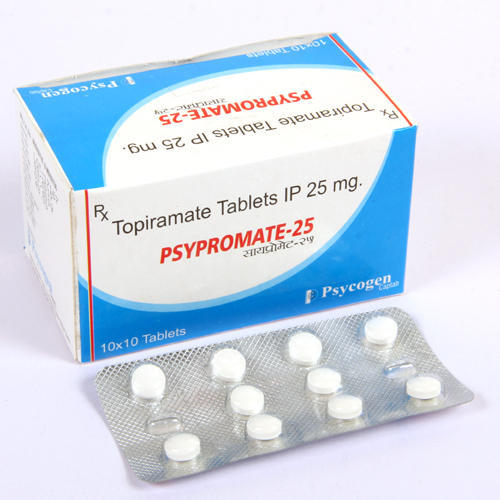Topiramate is a medicine that might help people with epilepsy, anxiety, and migraines. It works by reducing the frequency of seizures or headaches when taken at higher doses; however, it can also cause some side effects such as fatigue and weight loss. This article tells you about the drug topiramate and how it can help you.
Contents
What is Topiramate?

Topiramate is a prescription medicine that treats seizures in people with epilepsy. It also prevents migraine headaches and relieve symptoms of depression. It affects chemicals in the body that may become unbalanced and cause seizures. In children, it can also treat partial-onset seizures. There are other uses for the medication that have been approved by the FDA but this article focuses on epilepsy and migraines/headaches.
Dosage of Topiramate
Topiramate comes as a tablet and chewable dispersible tablet to take by mouth. It is usually taken two times a day, with or without food. In adults, the usual starting dose of topiramate for epilepsy ranges from 25 mg/day to 50mg/day depending on your dosage form (tablet vs. chewable dispersible tablet). The dosage is then adjusted by your doctor up to a maximum dose of 300 mg/day.
Directions of Use
The dosage of topiramate that your doctor prescribes will vary depending on many factors, including your age, weight, and medical condition. Topiramate should be taken exactly as prescribed by your doctor. Do not stop taking topiramate without first talking to your doctor.
Considerations While Using Topiramate

Topiramate may not be safe for everyone. You should always talk to your doctor before taking topiramate if you have:
- Kidney disease (or other kidney problems)
- Liver disease or liver failure
- Heart problems, including “sick sinus syndrome” and slow heart rate
- Problems with the electrical system of your heart (such as long QT syndrome, second- or third-degree atrioventricular block)
- A metabolic disorder that affects how your body breaks down sugars and starches (carbohydrate intolerance)
- Gout, high uric acid levels in the blood, or a history of gout attacks. It is not known if topiramate will increase your risk of getting gout attacks
- A history of mental health problems, such as depression or suicidal thoughts or behavior
Topiramate and Pregnancy
Topiramate may cause birth defects if taken during pregnancy. If you are pregnant or become pregnant while taking topiramate, call your doctor right away. Women of childbearing age should use effective contraception while taking topiramate.
Topiramate and Breastfeeding
It is not known whether topiramate passes into breast milk. Therefore, it should be taken with caution while breastfeeding as well as during pregnancy. If you have any other questions about the medication, please talk with your doctor.
Side Effects

Topiramate can cause different side effects, depending on the person taking it and if they are also taking other medications or have any medical conditions. Side effects that may occur in people who take topiramate include:
- Fatigue
- Dizziness
- Nausea
- Vomiting
- Weight loss
- Decreased appetite
It is important to talk with your doctor if you are experiencing any side effects while taking topiramate. Your dosage may need to adjust or other medications may need to add.
Can I take this medication with other medications?
Topiramate can interact with other medications that you are taking. It is important to always tell your doctor about all the medications and supplements you are taking before starting topiramate. This will help avoid any possible interactions. Some of the more common medications that may interact with the medication include:
- Benzodiazepines such as alprazolam (Xanax) and lorazepam (Ativan)
- Antidepressants such as fluoxetine (Prozac), paroxetine (Paxil), and sertraline (Zoloft)
- Other seizure medications such as carbamazepine (Carbatrol, Tegretol)
- Other psychiatric medications such as clozapine (Clozaril), risperidone (Risperdal), and thioridazine (Mellaril).
Additionally, topiramate can cause serious reactions when taken with some types of antibiotics including:
- Griseofulvin-type antibiotics used to treat fungal infections such as griseofulvin (Gris-Peg, Fulvicin) and terbinafine (Lamisil)
- Macrolide antibiotics such as azithromycin (Zithromax), clarithromycin (Biaxin), erythromycin (E.E.S., EryPed, Ery-Tab), or telithromycin (Ketek)
As well as serious reactions when taken with the following medications: Antifungal medications such as itraconazoleole (Sporanox) and ketoconazole (Nizoral).
Is It Addictive?
There is no evidence that Topamax is addictive. However, if you have been taking it for a while and then stop, you may experience some withdrawal symptoms.
If your doctor prescribes Topamax or any other medication, it is important to read the information sheet that comes with it. If you have any further questions, please ask your doctor or pharmacist.
Conclusion
Topiramate is a medication that treats seizures, migraines and other disorders. It may also help with weight loss because it can stop hunger pains for up to 12 hours after you take the medication. This means that if you have obesity or are at risk of developing it, taking the medication could be an option to consider as part of your treatment plan. Make sure you consult with your doctor before starting any new medications so they can assess whether this drug would work well for your body type and lifestyle needs. If there’s one thing we know about pharmaceutical drugs, it’s that every person responds differently!
If you are looking for affordable Online Counseling MantraCare can help: Book a trial therapy session


